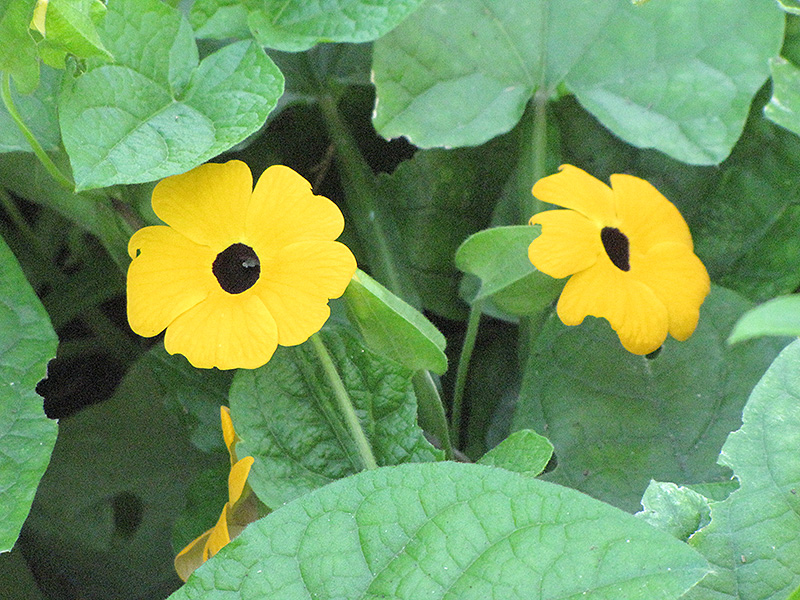Height: 9 feet Spread: 24 inches
Sunlight:
Hardiness Zone: (annual) Ornamental Features Black-Eyed Susan Vine features bold lemon yellow tubular flowers with black throats along the stems from early summer to mid fall. Its serrated oval leaves remain green in color throughout the season. Landscape Attributes Black-Eyed Susan Vine is an herbaceous annual with a ground-hugging habit of growth. Its medium texture blends into the garden, but can always be balanced by a couple of finer or coarser plants for an effective composition. This plant will require occasional maintenance and upkeep, and can be pruned at anytime. It is a good choice for attracting butterflies to your yard. It has no significant negative characteristics. Black-Eyed Susan Vine is recommended for the following landscape applications; Planting & Growing Black-Eyed Susan Vine will grow to be about 9 feet tall at maturity, with a spread of 24 inches. As a climbing vine, it should either be planted near a fence, trellis or other landscape structure where it can be trained to grow upwards on it, or allowed to trail off a retaining wall or slope. Although it's not a true annual, this fast-growing plant can be expected to behave as an annual in our climate if left outdoors over the winter, usually needing replacement the following year. As such, gardeners should take into consideration that it will perform differently than it would in its native habitat. This plant does best in full sun to partial shade. It does best in average to evenly moist conditions, but will not tolerate standing water. It is not particular as to soil type or pH. It is highly tolerant of urban pollution and will even thrive in inner city environments. This species is not originally from North America. It can be propagated by cuttings. Black-Eyed Susan Vine is a fine choice for the garden, but it is also a good selection for planting in outdoor containers and hanging baskets. Because of its spreading habit of growth, it is ideally suited for use as a 'spiller' in the 'spiller-thriller-filler' container combination; plant it near the edges where it can spill gracefully over the pot. It is even sizeable enough that it can be grown alone in a suitable container. Note that when growing plants in outdoor containers and baskets, they may require more frequent waterings than they would in the yard or garden.
A NetPS Plant Finder tool![]()
![]()
![]()
![]()
![]()
![]()
![]()
![]()
![]()
![]()
![]()
![]()

